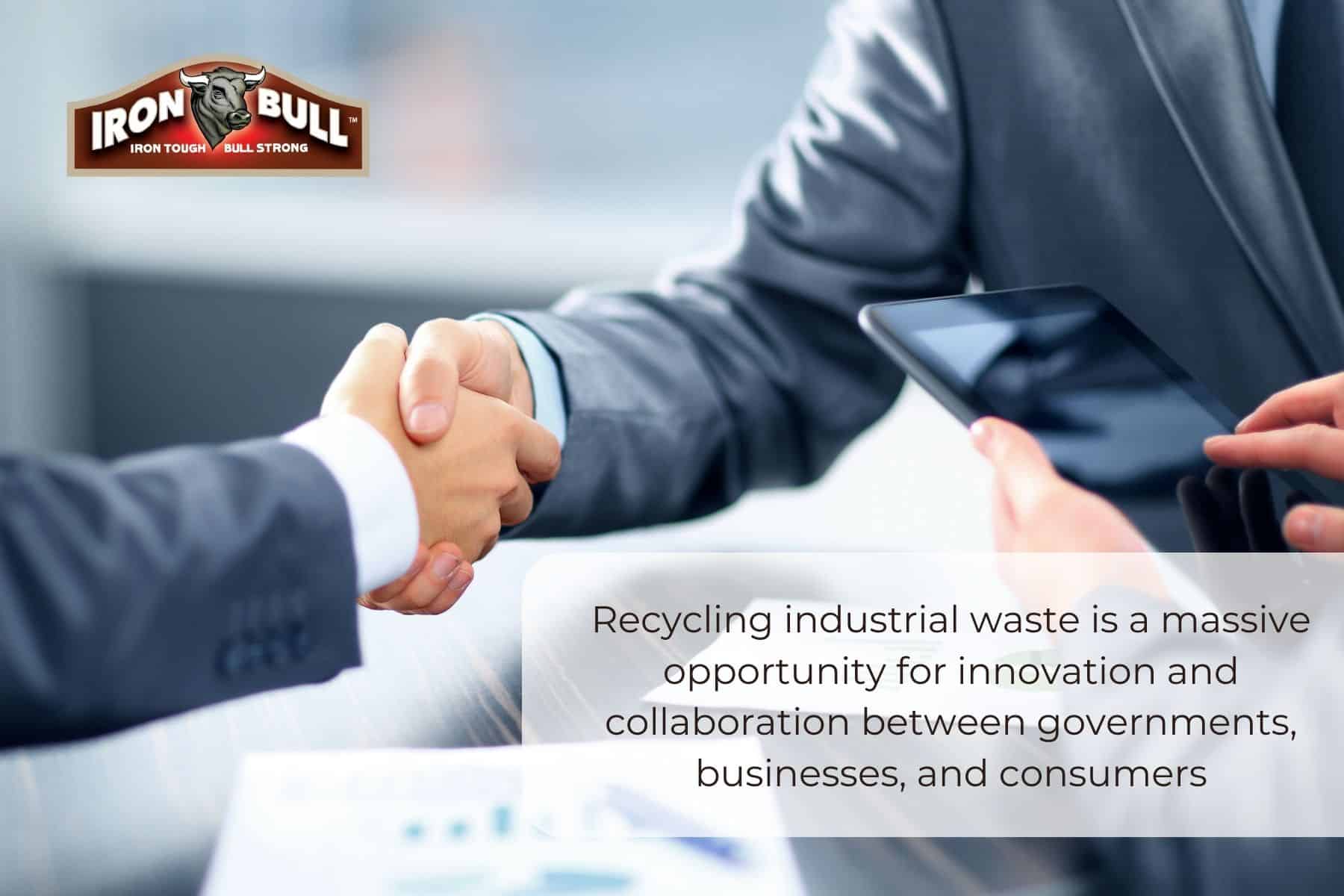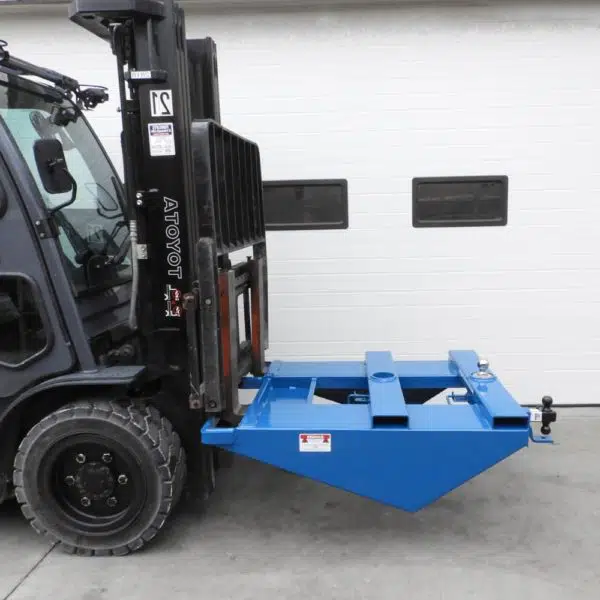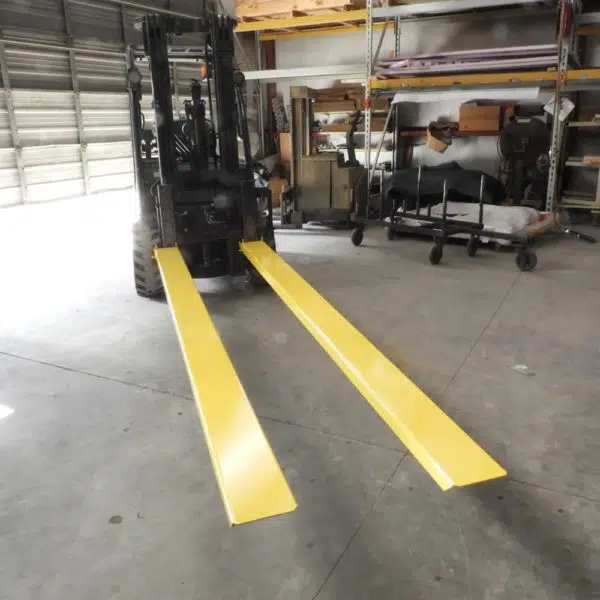Challenges and Opportunities for Recycling Industrial Waste
Industry is essential to our modern way of life, as it creates jobs, boosts the economy, advances innovation, and raises the standard of living.
However, one downside to increased industrialization is the massive amount of waste it creates. The by-products of industry, including chemicals, metals, sludge, and other hazardous and non-hazardous waste materials, threaten to pollute the environment if handled unsustainably.
But at Iron Bull Manufacturing, we believe that every problem has a solution, including waste management!
One of the most sustainable solutions to industrial waste is to recycle it. Of course, that isn’t always possible, and there are currently many challenges to recycling industrial waste. Still, there are many opportunities as well.
In this article, we’ll explore those challenges and opportunities so we can move toward a better future together!
Three Reasons to Recycle Industrial Waste
It’s often much easier to toss waste in a landfill rather than working to recycle it. But in the long term, recycling waste is a much better alternative.
Let’s explore why.
1. Environmental Protection
Recycling is helpful for the environment in a myriad of ways.
- Recycling reduces the need for raw materials, which helps conserve natural resources from being destroyed for extraction.
- Recycling prevents waste from being sent to landfills, which also preserves natural resources by keeping them from being turned into landfills and covered in trash.
- Recycling often requires less energy than extracting and processing raw materials.
- Using less energy results in fewer overall greenhouse gas emissions.
- If you recycle, fewer waste materials are sent to landfills, which reduces the environmental and health risks associated with the accumulation of waste.
- Particularly with hazardous industrial waste, recycling the material prevents harmful substances from being released into the environment and polluting the air, soil, and water.
2. Economic Benefits
The benefits of recycling go well beyond the environment; there are also many economic benefits to recycling industrial waste.
Recycling waste can save companies money in the short term by reducing disposal fees and saving energy. They can also generate new income from selling recycled materials.
Long-term, recycling has cost-saving potential by promoting a “circular economy.”

Traditionally, the economy has run on a linear “take, make, dispose” model. However, this model cannot work forever, as our planet has limited resources. A circular economy, on the other hand, is an economy where resources are reused instead of extracted.
By making strides toward a circular economy, a company safeguards its business against the potential economic downturn when resources run dry, or regulations prevent resource extraction.
Finally, since environmental protection is a growing concern among the public, being environmentally friendly is good for a company’s brand.
3. Compliance with Regulations
Many regions have strict regulations about industrial waste management, which will likely get even more stringent as our world becomes more concerned about the environment and limited resources.
By making strides to recycle as much industrial waste as possible, a company can avoid hefty fines from current regulations while being prepared for increased regulations in the future.
Challenges in Recycling Industrial Waste
Unfortunately, despite the many benefits of recycling, it’s not always feasible or even possible. Let’s explore some of the current challenges to recycling industrial waste.
- The problem of hazardous waste
Hazardous waste material can cause risks to human health and the environment, so there are stringent requirements for disposing of it and recycling it is often an extra complicated and difficult process. - Difficulties with waste composition
Industrial waste is often composed of various materials combined in ways that can be difficult to separate, sort, and process. - Lack of infrastructure
We simply don’t have systems in place for recycling all types of materials! - Economic issues
Due partly to a lack of recycling infrastructure, recycling materials isn’t always economically feasible. Recycling may be significantly more expensive than acquiring new materials, which de-incentivizes people to focus on recycling. This makes it even more financially challenging for those who wish to recycle.
Addressing these challenges is difficult but not impossible. It requires a forward-thinking mindset, innovation, and collaboration between government bodies, industries, communities, and researchers.
Together, we can create systems that are economically viable while also being environmentally sustainable.
Opportunities in Recycling Industrial Waste
It’s easy to look at the challenges of recycling and feel discouraged, but there are many reasons to feel optimistic! Let’s explore some of the opportunities that recycling industrial waste offers.
Energy Recovery
Our modern world requires a great deal of energy to function, and countries and corporations are always searching for more efficient and renewable energy systems.
Waste recycling provides an opportunity to turn waste products into energy.
There are two primary methods of energy recovery from waste products. The first is incineration, where combustible materials are burned, producing heat that can be turned into energy by heating water and sending high-pressure steam through turbines.
The second method of energy recovery is anaerobic digestion, where microorganisms break down organic materials into biogas, which can be used as an energy source.
As technology advances, humans will get better and better at turning industrial waste into energy.
Circular Economy
As mentioned earlier, recycling industrial waste provides opportunities for a circular economy supported by closed-loop recycling systems.
Although we’re far from a completely circular economy, any strides in that direction will drastically minimize waste and benefit everyone, from corporations to consumers.
For example, think of a company like Amazon that delivers millions of packages daily. All that packing material needs to come from somewhere, and much of it ends up in the trash at the end of the day, generating millions of tons of waste every year.
If Amazon designed the material to be reused or recycled into packing material that would go right back to the company, all that potential trash would instead be used over and over. This would benefit Amazon because they’d no longer need to buy packing material, and it would benefit the world by producing less waste.
Innovation/Collaboration
Finally, recycling industrial waste is a massive opportunity for innovation and collaboration between governments, businesses, and consumers, including:
- Cross-industry partnerships
- Research and development teams
- Collaboration between government and industry
- Partnerships with waste-management companies
- International collaborations
With enough collaboration and innovation, we can find solutions to even the most complicated recycling issues.

Why Industrial Hoppers are Critical for Recycling Industrial Waste
At Iron Bull, we aim to be part of the wave of innovation and collaboration moving our world toward better recycling and waste management practices.
Our contribution to the recycling movement is our line of industrial trash hoppers, which provide a convenient and efficient means of collecting, transporting, and disposing of various waste materials.
For example, our self-dumping hoppers have a tilting mechanism that allows them to be easily emptied, making them particularly useful in industries that generate bulk quantities of waste.
Since we’re committed to innovation, we also design custom hoppers to fit your unique disposal needs!
We design all our industrial trash hoppers to be durable, easy to use, efficient, and safe. Our line of hoppers includes:
- Sawdust hoppers
- Construction hoppers
- Stretch hoppers
- Low-profile hoppers
- Drop-bottom hoppers
- Quick-ship hoppers
- Self-dumping hoppers
- Custom hoppers
Contact us today, or give us a call to tell us how we can collaborate with you on your recycling journey!






